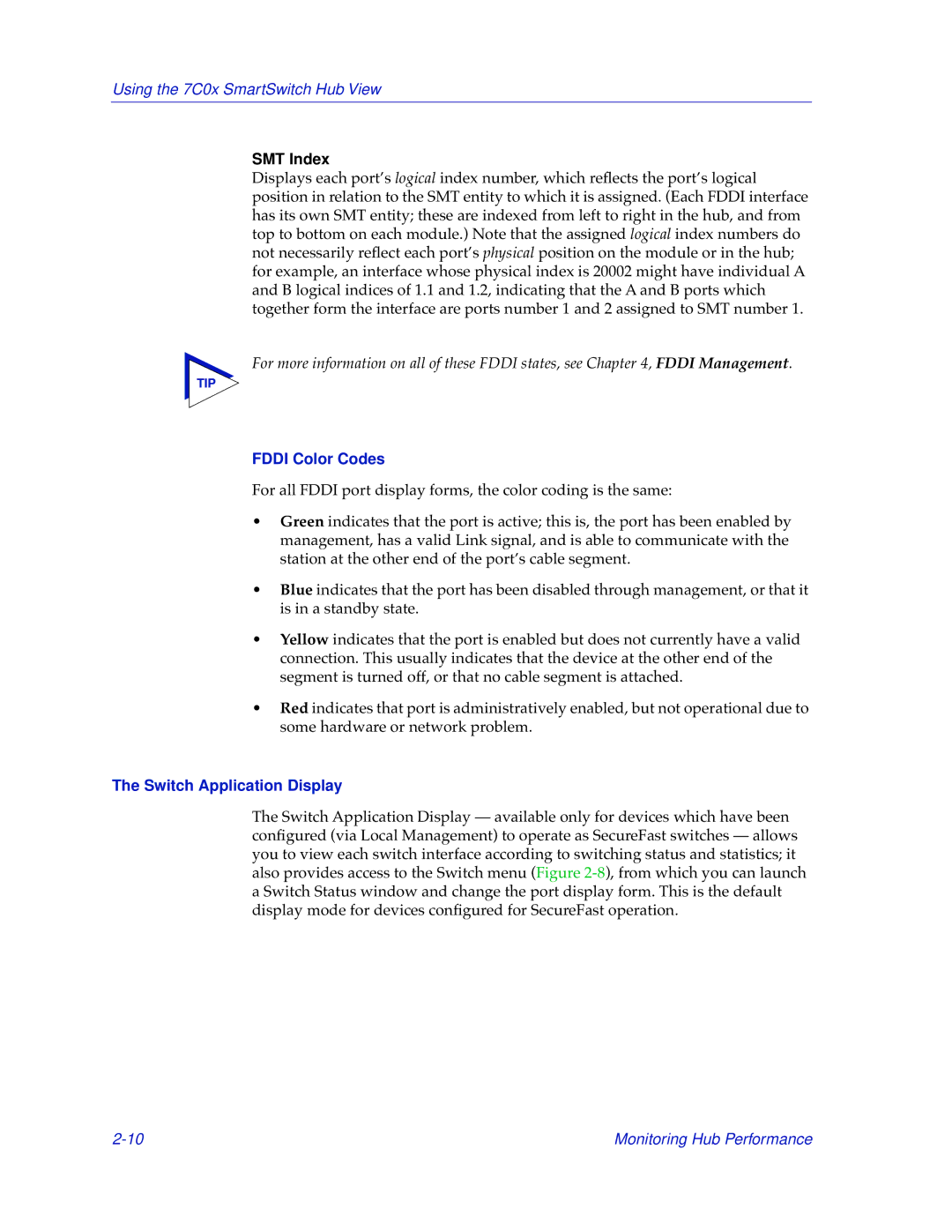
Using the 7C0x SmartSwitch Hub View
SMT Index
Displays each port’s logical index number, which reflects the port’s logical position in relation to the SMT entity to which it is assigned. (Each FDDI interface has its own SMT entity; these are indexed from left to right in the hub, and from top to bottom on each module.) Note that the assigned logical index numbers do not necessarily reflect each port’s physical position on the module or in the hub; for example, an interface whose physical index is 20002 might have individual A and B logical indices of 1.1 and 1.2, indicating that the A and B ports which together form the interface are ports number 1 and 2 assigned to SMT number 1.
For more information on all of these FDDI states, see Chapter 4, FDDI Management.
TIP
FDDI Color Codes
For all FDDI port display forms, the color coding is the same:
•Green indicates that the port is active; this is, the port has been enabled by management, has a valid Link signal, and is able to communicate with the station at the other end of the port’s cable segment.
•Blue indicates that the port has been disabled through management, or that it is in a standby state.
•Yellow indicates that the port is enabled but does not currently have a valid connection. This usually indicates that the device at the other end of the segment is turned off, or that no cable segment is attached.
•Red indicates that port is administratively enabled, but not operational due to some hardware or network problem.
The Switch Application Display
The Switch Application Display — available only for devices which have been configured (via Local Management) to operate as SecureFast switches — allows you to view each switch interface according to switching status and statistics; it also provides access to the Switch menu (Figure
Monitoring Hub Performance |
